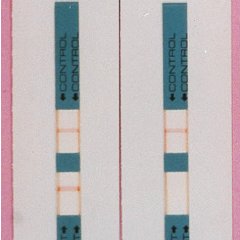Uganda’s Ministry of Health is at risk of losing critical funding from the Global Fund, one of the largest donors in the fight against HIV/AIDS, amid explosive allegations that ABBOTT Laboratories, a supplier of HIV test kits, is covertly financing influential politicians at the helm of Ministry of Health to block the adoption of a safer and more accurate HIV testing method, an investigation by this website reveals.
This comes shortly after the United States government froze and cut health sector support through USAID, leaving a massive shs 604 billion funding gap.
The Global Fund has since raised serious concerns over how Uganda’s Ministry of Health is handling its donor resources, especially in relation to HIV testing.
Sabotaging Testing Reforms
Sources within government allege that ABBOTT, the supplier of Uganda’s outdated “Determine” HIV test kits, has been quietly bankrolling top politicians to frustrate efforts to replace the older kits with the three-test algorithm recommended by the World Health Organization (WHO) and supported by the Global Fund.
Despite receiving $450,000 (shs 1.6 billion) in 2024 to evaluate and recommend new HIV testing technologies through the Uganda Virus Research Institute (UVRI)—whose findings backed the new method—the Ministry of Health has delayed implementation.
A November 29, 2024 circular had even announced a national switch to the updated testing protocol. But insiders say this was reversed under political pressure.
Two scheduled stakeholder meetings to discuss the rollout were cancelled at the last minute.
“The politicians are selfishly protecting their re-election interests at the expense of millions of lives,” said a senior source within government.
“All they care about is the money they get from suppliers like ABBOTT to fund their campaigns. They are facing resistance in their constituencies and need to buy off voters.”
Dangerous Consequences
Uganda has relied on the ABBOTT-supplied two-test HIV algorithm for over a decade.
However, health experts and the WHO have flagged the method as outdated and dangerous because it fails to detect HIV during the “window period”—the early phase after infection when individuals can unknowingly spread the virus.
The WHO recommended a three-test system in 2019, which is already in use in neighboring countries with similar HIV prevalence.
This method provides earlier and more accurate diagnoses, enabling faster treatment and reducing the spread of the virus.
Continuing with the Determine kit not only puts millions of Ugandans at risk but also leads to misdiagnoses, unnecessary treatment, and wasted public health resources.
Backlash
On April 24, 2025, the Global Fund wrote a letter to Uganda’s Ministry of Finance, which oversees donor fund disbursement, expressing its dissatisfaction and ordering a freeze on spending in several areas.
These include vehicle purchases, laboratory and IT equipment, meetings, and surveys—an unusual but telling move indicating deep concern over Uganda’s health sector governance.
The Global Fund had specifically financed UVRI’s testing initiative to guide the country toward the WHO-approved algorithm, but the Ministry’s reversal and internal sabotage have undermined that objective.
Mounting Pressure
Stakeholders are increasingly voicing frustration. A major HIV test kit supplier wrote to the Ministry of Finance questioning the policy reversal, and the Uganda Medical Laboratory Association (UMLTA) has petitioned the Ministry of Health, urging immediate adoption of the safer, cheaper, and more accurate testing protocol.
“We know the current kits are flawed. We’ve tested better options. The delay is political, not scientific,” said a member of UMLTA.
There is also growing tension between the Ministry of Health and the Ministry of Finance, with Finance officials reportedly concerned that the Ministry’s poor decision-making could result in the permanent loss of donor support at a time of already crippling budget shortfalls.
Silence
Despite the gravity of the situation, key health officials remain unresponsive. Dr. Diana Atwine, the Ministry’s Permanent Secretary, could not be reached for comment. Minister Jane Ruth Aceng was also unavailable, and Ministry spokesperson Emmanuel Ainebyoona did not respond by press time.
What’s at Stake
Uganda stands at a dangerous crossroads. The refusal to adopt modern HIV testing methods—allegedly influenced by a foreign supplier’s financial ties to domestic politicians—threatens to derail decades of progress in HIV/AIDS prevention and treatment.
Experts warn that failure to act swiftly will not only endanger public health but also lead to the collapse of donor trust and funding, especially from key partners like the Global Fund and USAID.
With lives at stake and billions of shillings in donor aid on the line, Uganda’s health leaders must now decide: protect special interests—or protect the people.





